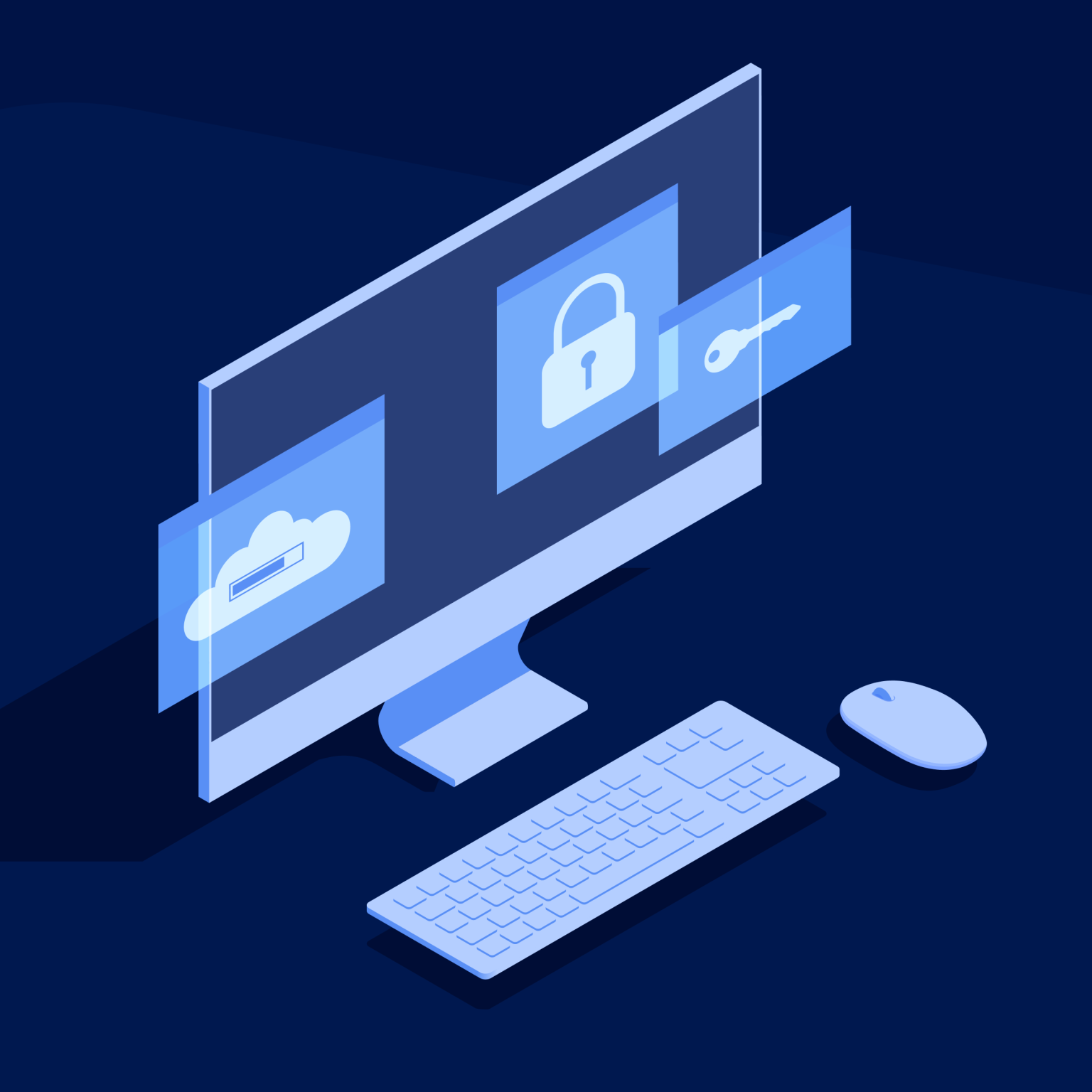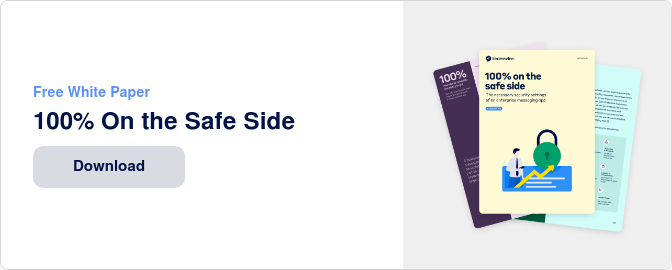Why Data Sovereignty Is So Important
Data sovereignty means companies retain full control over their data – from storage to processing and sharing. Such data sovereignty is essential for companies that work with confidential information or are subject to strict regulatory requirements. It is not just about comprehensive protection of sensitive information, but about absolute sovereignty over all of an organization’s data at all times and on every end device.
In this respect, far-reaching options for the administration, management, and control of data exchanged via a messenger are important. By using a suitable messenger, organizations can ensure that their data is neither unintentionally passed on to third parties nor intercepted by external parties. These requirements are essential for compliance with data protection laws such as the GDPR, but above all for the general security of organizations and confidential information.
The Most Important Requirements
Central Administration As the Foundation for Data Sovereignty
User Administration
A central aspect of data sovereignty is the organization-wide administration of all users and end devices via a user-friendly administration portal. The IT administrator should be able to use this portal to invite users, manage their accounts and end devices, and authorize or block access rights. This allows companies to retain full control over their communication channels and the associated data at all times.
Definable Communication Rules and White Listing of Users
Companies must be able to define basic communication rules that determine which users are allowed to communicate with each other. If required, external communication can also be enabled for selected users. A solid messenger should support the whitelisting of users so that only previously invited contacts can exchange messages.
Pooling and Multi-Client Capability
A secure messenger should offer the option of organizing users into circles (pooling) and managing different clients. This is particularly important for large organizations such as governments and companies with multiple departments that require a clear separation of their data (e.g. “Chinese walls” in the financial world). Multi-tenancy ensures that data sovereignty is maintained, as each department or team can work independently.
Absolute Control Over All Data on All End Devices
Configurable Retention Periods and Automated Deletion
A messenger must make it possible to set flexible retention periods – both for the server and for the apps. This is necessary to ensure that data is only stored for as long as it is needed. Automatic deletion at the end of these periods prevents unnecessary data from being stored and thus reduces the risk of data leaks.
Remote Deletion in the Event of Device Loss (Data Loss Prevention)
With the increased use of mobile devices, the risk of data loss due to stolen or lost smartphones and laptops is growing. A secure business messenger must therefore offer the option of deleting data remotely. This way, if a device is lost or stolen, an IT administrator can immediately remove the data stored on the device to prevent data breaches.
Granular Guidelines for Data Access
An important feature of a secure messenger is the ability to set granular policies for data access. Companies should be able to determine exactly what information users are allowed to access and what functions are available to them. This includes blocking functions such as copy & paste or sending files to prevent the unwanted distribution of confidential data.
Encrypted App Container
Security does not end with communication – the data stored on mobile devices must also be protected. A messenger should therefore store data in an encrypted app container that can be fully managed and controlled by the IT department. This ensures data security even when using mobile devices.
Secure Integrations and Connections
The integration of third-party tools and interfaces can pose a security risk if it remains uncontrolled. A secure messaging solution must therefore offer secure integrations where all connections to external solutions are controlled. Ideally, these interfaces and APIs should be developed by the messenger provider itself to prevent uncontrolled data outflows.
Deactivating the Message Preview
If your company wants to prevent messages from being displayed in push notifications from Apple or Google and thus transmitted to American providers, it should be possible to deactivate the message preview for all users company-wide.
GDPR Compliance and German Jurisdiction
For European companies, compliance with the General Data Protection Regulation (GDPR) is of the utmost importance. A messenger provider based in Europe has the advantage of being subject exclusively to European jurisdiction. This means that US laws such as the Cloud Act or the Patriot Act do not apply. In addition, companies should choose a messenger that offers legally compliant, far-reaching, and transparent commissioned data processing (ADP).
Flexibility in Hosting – Cloud or On-Premise
Another factor that contributes to data sovereignty is the choice of hosting location for a secure messenger. Companies should have the option of hosting their data either in a secure German cloud, a private cloud or even on-premise on their own servers. This flexibility allows companies to store their data where their security and data sovereignty requirements are best met.
Conclusion: Data Sovereignty as the Key to Security
The requirements for a business messenger are high when it comes to ensuring data sovereignty. Flexible policies, remote deletion capabilities, secure encryption, and GDPR compliance are essential to maintain control over company data.
Messenger services that offer these features are becoming an indispensable tool in the security strategy of modern organizations – especially in sectors where protecting sensitive information is a top priority. Data sovereignty is more than just a buzzword: it is the key to secure and controlled digital communication.
Teamwire meets all these requirements and offers companies a solution that guarantees both, security and flexibility in the management of their data.
If you want to learn more about which security requirements a business messenger must fulfill, download our free white paper “100 % on the safe side”.

